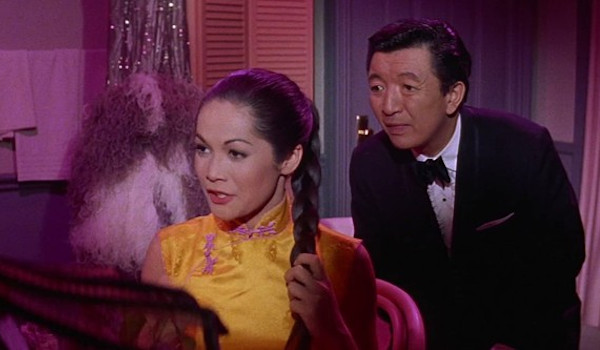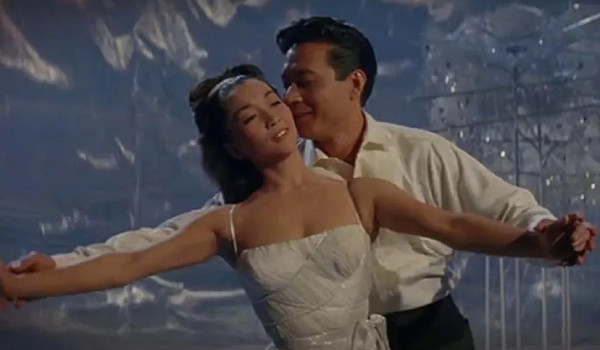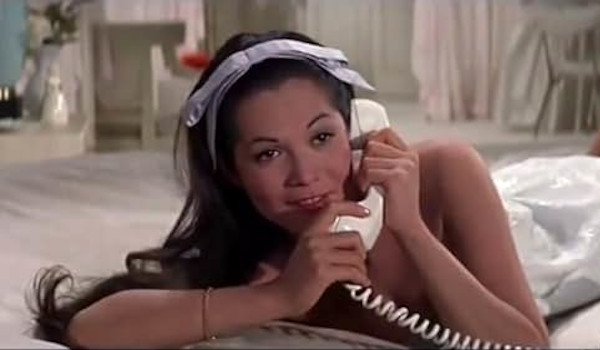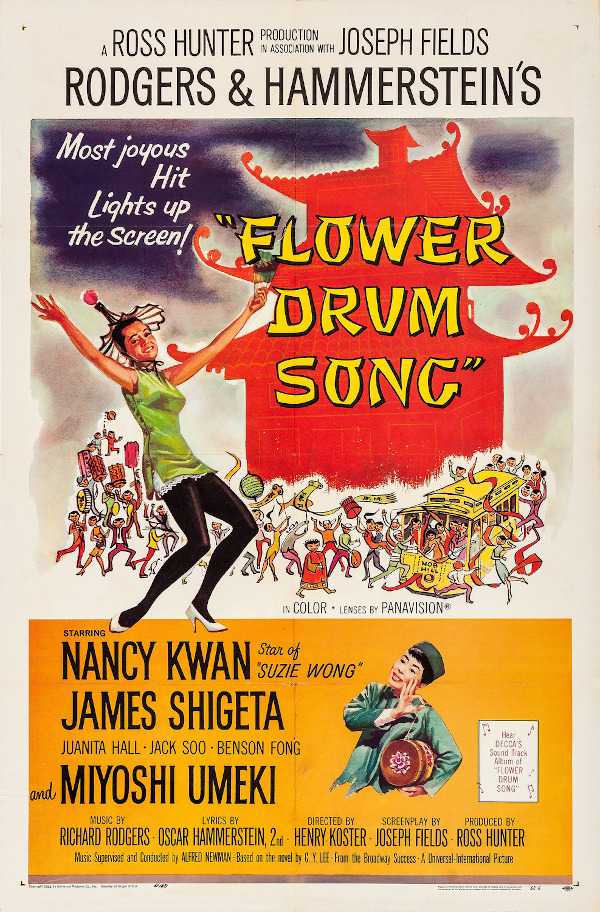- Title: Flower Drum Song
- IMDb: link

Adapted from the Broadway musical of the same name, Flower Drum Song became the first contemporary Asian-American story featuring an Asian cast produced as a major Hollywood feature film. Like the play, the movie met with mixed responses with some praising Hollywood focusing on Asian-American characters while others took issue with Asian stereotypes, casting both Japanese and Chinese actors for the Chinese roles, and some problematic lyrics (also causing major productions of the play to halt for decades). In 2008 the film was added to National Film Registry by the Library of Congress as culturally significant, so significant it took Hollywood three decades to release another major film centered around, and starring, predominantly Asian leads.
Flower Drum Song isn’t a great musical, which has more to do with the film missing a trademark song than its subject matter or casting. The closest you get is the admittedly fun “I Enjoy Being a Girl” which is sung by the film’s most self-centered and most conniving character.
The love triangle squared plot involves Mei Li (Miyoshi Umeki) and her father (Kam Tong) sneaking into the country, another aspect not likely to play well to certain audiences today, for an arranged marriage between Mei Li and nightclub owner Sammy Fong (Jack Soo). However, Sammy is in love with Linda Low (Nancy Kwan), a performer in the nightclub, but too afraid of his mother to commit to marriage. Linda has also started seeing Wang Ta (James Shigeta), the eldest son of a the wealthy Wang Chi-Yang (Benson Fong) who also takes to the idea of arranging a marriage between his son and Mei Li. There’s also a seamstress (Reiko Sato) in the nightclub who wants to be far more than friends with Wang Ta.
A romcom on steroids, the plot follows a series of deceptions, revelations, contrivances, reveals, and misunderstandings before finally putting the couples that make the most sense together in the final five-minutes of the movie. All of them get their happy ending (well, except for poor Helen, who ends up alone – but at least doesn’t commit suicide like she does in the original novel). What the movie strives to do, and succeeds, is focus on the generational and cultural divide between Wang Ta’s generation and that of his father as well as the differences between the Asian characters born inside versus outside of the United States.
The title of the movie, like the play and novel before it, comes from the traditional Chinese folk song which Mei Li sings on multiple occasions over the course of the film which oddly enough doesn’t play a major role in the movie. Is also notable that many of the stars don’t do their own singing for the film, including B.J. Baker providing the vocals for Linda Low. Dated in places, the film is more notable than great. It did provide representation for talented Asian actors and singers on-screen which was sorely lacking at the time (and, sadly, also in the decades that followed).




Watch “I Enjoy Being a Girl”
Watch “Chop Suey”

